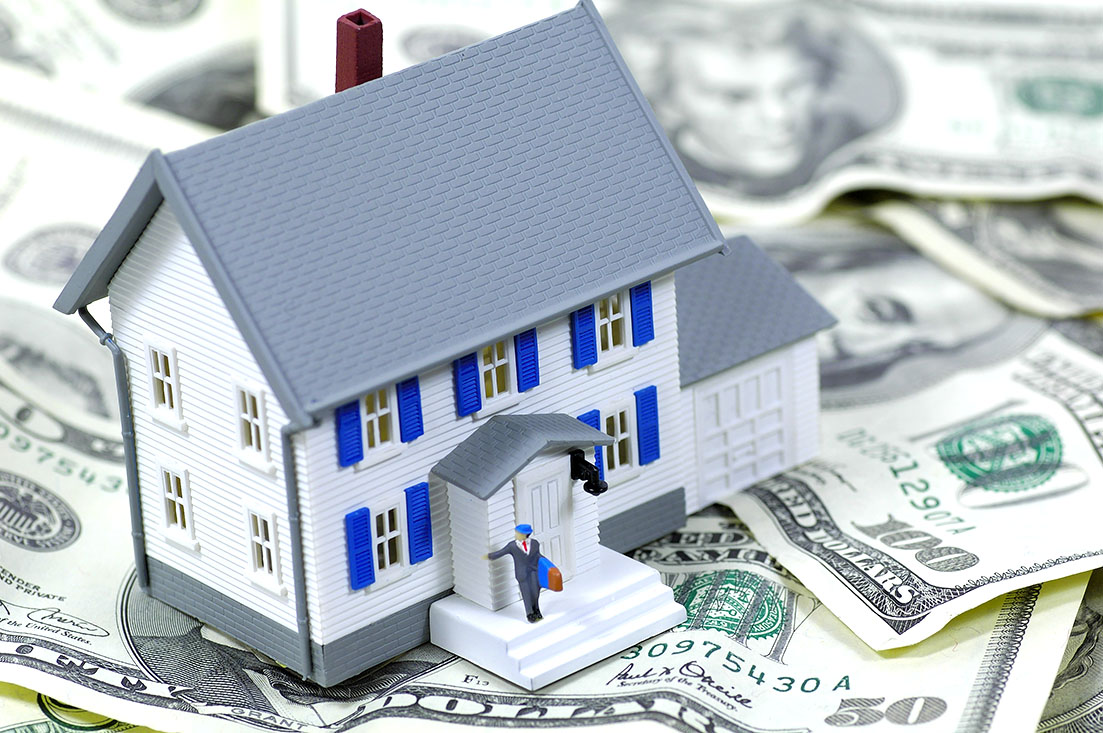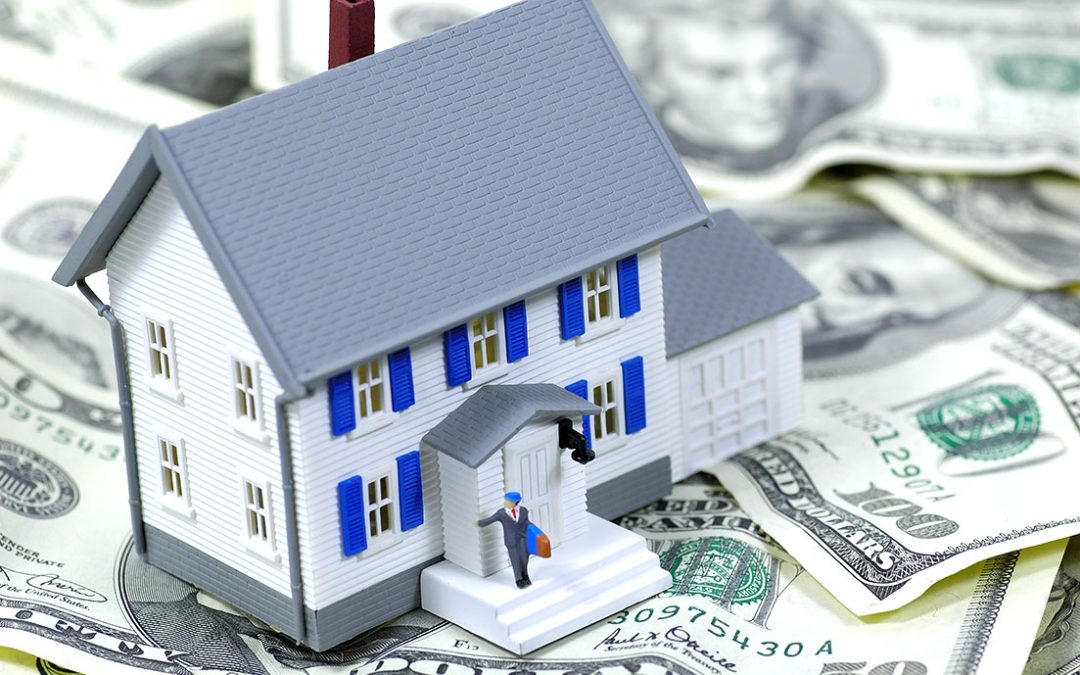
It’s one of the most common strategies to obtain the funds for the down payment of a cash flowing asset. With that in mind, if you have equity sitting in a property, you will want to dive into this article to find out how to tap into that money that’s locked away, just waiting to be utilized.
If you’re not familiar with the subject, you may be asking – what does equity mean? So, let’s start with the answer to that question:
What is Equity?
I’ll define equity as it pertains to real estate – it’s the market value of the property minus the amount of money that is owed on the mortgage. Also, consider this equity definition that’s in the form of this simplified example to better understand its meaning:
An investor owns a rental property where the fair market value is appraised at $250,000. At this time, the investor’s remaining balance on the mortgage is $200,000. This provides them with $50,000 in owner’s equity.
Here’s a general equity definition by Wikipedia for another perspective.
What are the Main Benefits of Having Equity in a Property?
There are many aspects of having equity in a property that make it extremely beneficial – from tax breaks to having the ability to buy more rental properties. Here is a list of a few main advantages:
- Eligible for Low-Interest Rates: When you’re borrowing against equity, banks view this as a loan that’s less risky and more secure. Since the lenders see it as low risk, the investor will typically be offered a lower interest rate.
- Opportunity to Add Property Value: Having equity built up provides the opportunity to have access to funds to perform renovations, upgrades, and repairs. This, in turn, can raise the value of the home and add even more equity that you can tap into.
- Provides Funds for Additional Investments: One of the biggest benefits of having equity is the fact that it provides the money to fund the down payment of an additional rental property. This approach is commonly used in what is called the BRRRR Method for real estate investors. Dive into our article on the BRRRR Method to learn how it can quickly build your portfolio.
- Tax Advantages: If you use your equity for renovations, the IRS will allow you to write off a portion of the interest. Take a look at this post on real estate tax benefits to ensure you are getting the tax savings you are entitled to. If you need help sorting out your taxes as they pertain to real estate, contact Tom Wheelwright of WealthAbility. He’s the personal tax advisor to real estate tycoon Robert Kiyosaki and comes highly recommended.
How Do You Build Equity in Real Estate?
You might be thinking this all sounds great, but how do you build equity? Let’s take a look at a few ways this is accomplished:
1. Make a Larger Down Payment When a Property is Purchased
When you buy a property, you can jump-start your equity with a big down payment. Many home purchasers put down 20% to avoid having to pay private mortgage insurance. However, putting down more than that, even 22%, will decrease the amount owed in interest and will speed things up a bit.
2. Allocate Extra Monthly Mortgage Payments
The money you put towards mortgage payments can help grow your property’s equity. With that said, paying more than is required each month will enable you to shorten the life of the loan, save you thousands in interest, and boost your equity. A few ideas for paying more than is required would be to simply pay extra towards your payment each month, make a few extra payments per year, or arrange it so that you make biweekly payments, which will automatically end up adding one extra payment annually. One extra payment per year may not sound like a lot; however, depending upon the loan amount, it could result in paying off your loan 3 to 5 years early.
The faster you pay your mortgage off, the more interest you avoid paying, and the more you raise your equity. You can read this Forbes article on 5 ways to pay your mortgage off early. Or, watch this video for some insider tips on paying your mortgage off in 5 years instead of 30:
3. Increase the Property Value with Renovations and Upgrades
Improvement projects can add instant equity because it increases the value of the property. Not all renovations raise the worth of a rental property, but here is a list of a few that will:
- Replacing Front Door with a Steel Version
- Kitchen & Bathroom Remodels
- Addition of an Outdoor Deck
- Replacing the Garage Door
- Adding Energy Efficient Vinyl Windows
- Upgrade to Vinyl Siding
- Adding Usable Square Footage
You can also read this article on outdoor upgrades that make your home more valuable by home improvement expert Bob Vila.
4. Use a Buy and Hold Appreciation Strategy
Even if an investor decides not to take extra steps to grow their property’s equity, it should still rise through appreciation. This is because real estate almost always naturally grows or appreciates in value over time.
This example may be a bit extreme because of the number of years involved, but it’s still a good way to show how appreciation works – The parents of an acquaintance of mine had purchased an oceanfront property in 1966 for $19,000, in which no specific renovations were done to improve the property value. In 2015, when the house sold, the property was worth 2 million dollars. The property had built up an incredible amount of equity just through natural appreciation.
How is Equity Used in Real Estate Investing?
At this point, you probably would like to know how to tap into the money that’s just sitting in your property. It’s a good idea to put it to use, so let’s go over a few options – Home Equity Loan, HELOC, and Cash-Out Refinance:
1. Obtain the Funds You Need with a Home Equity Loan
What is a home equity loan? It’s a loan that’s basically a second mortgage on your property. Lenders will allow the owner to take out a loan amount that is around 80% of the property’s equity. It provides an amazing opportunity to obtain the needed funds to place on a down payment of an additional rental property.
How Does a Home Equity Loan Work?
As an example, an investor receives a loan from a lender with the following specifications:
The investor’s property has built up $40,000 in equity, and therefore the loan amount would be $32,000 (40,000 x 80% = $32,000). The loan recipient would then receive a lump sum payment. The loan terms are completely separate from the first mortgage, they typically have a fixed interest rate, and the loan is paid back in monthly installments.
If you’re planning on using this type of loan to buy another piece of real estate, and you’re seeking out a property on your own, I recommend using DealCheck to analyze the properties that are on your radar. It can help you determine if the property will be profitable or not.
2. Use a Home Equity Line of Credit to Build Your Real Estate Portfolio
A home equity line of credit (HELOC) is basically a credit line that is secured by a home’s equity. The funds are utilized via checks, an online transfer, or a credit card that is attached to the account. The money can be used for whatever is needed.
The terms are similar to a home equity loan when it comes to the amount the lender makes available, which might be 80% of the equity. Additionally, there is what’s called a “draw period” where you access the funds when needed. During this period, typically, just payments on interest are made. Once the determined draw period is over, normally 5 to 10 years, it goes into full repayment with monthly payments made on the principal and interest.
To see if this type of strategy is right for you, take a look at the pros and cons of a home equity line of credit in this article from Bankrate.
3. Leverage Your Property with a Cash-Out Refinance
Using a cash-out refinance is a great real estate investing strategy that will enable you to tap into the equity of your property. What is a cash-out refinance? It’s when an existing property loan is refinanced for more than the amount owed on the current mortgage. The equity in the property is what provides the extra money that is above and beyond what is owed. The original loan is then paid off, and the difference between the original loan amount and the new loan is what the investor keeps.
So, how much equity can you leverage? A large portion, but not quite all of it. It’s typical for an equity bank to have a loan-to-value ratio of around 75%. This means that 25% of equity should be left untouched. For instance, if you have a rental property that is appraised at $200,000, and $100,000 is what is left in mortgage payments, you then have $100,000 in equity. But, you can’t cash-out on that full amount. Because of the loan-to-value-ratio of 75% – view the following example:
Property appraisal amount of $200,000 x 75% = new loan amount of $150,000. The $150,000 is used to pay off the remaining original mortgage of $100,000, which leaves $50,000 of usable equity. Closing costs and fees should also be considered.
A cash-out refinance is typically more attractive than obtaining a new loan. This is because traditional loans are harder to qualify for, and there are more rules and regulations that make the process difficult. Lenders prefer cash-out refinances because the property has value built up. Plus, the bank knows the tenant will basically be paying the mortgage, so it’s a less risky deal.
Dive into this video that details the process of a cash-out refinance to get a full understanding of the topic:
Equity – Frequently Asked Questions
Equity can be a bit confusing for those who are new to the game. In addition to this, there are multiple categories out there – homeowners, private, and shareholders’ equity. With that in mind, here are a few questions that are frequently asked:
1. How Do You Calculate Equity?
You can determine how much equity you have built up by subtracting the remaining amount you owe on the mortgage from the appraised value of the property. So, if you have a rental property that is worth $300,000, and you owe $100,000 in mortgage payments, you then have $200,000 in equity.
(Appraised Value) – (Mortgage Balance) = (Total Home Equity)
$300,000 – $100,000 = $200,000
Once you know how much you actually have, it will give you a better idea of what you have to work with when it comes to equity financing and acquiring an additional property.
2. What is Stockholders’ Equity?
Stockholders’ or shareholders’ equity is simply the amount of money that would be available after a business sold its assets and paid off all the company debts. The funds that are left would belong to the business owners, as well as the stockholders. This is what can determine the net worth of a company. Read this great article by business.com that goes over the topic of shareholder’s equity in detail.
3. What is Private Equity Real Estate Investing?
This entails a firm pooling capital from real estate investors and then using those funds to buy, develop, and keep real estate for a short time frame. The piece of real estate is then sold and the original investors profit from it. Private equity investments typically involve accredited high-end investors. For example, an investor may be asked to contribute $200,000 to be eligible to participate.
Additional Rental Real Estate Articles by Morris Invest
Whether you’ve been investing for a while or you’re brand new, it’s always wise to be on top of your game. Below you will find a few of our most popular articles that can help you become a well-rounded investor:
- Read this Article that Details Real Estate vs the Stock Market.
- Learn How to Buy Rental Properties with Multiple Investors.
- Texas is a Great Place to Start Investing in Real Estate – Find Out Why.
- Review These Tools & Resources to Learn How to Up Your Game.
- Learn Why it’s a Smart Idea to Hire an Experienced Property Manager.
- Dive into These Top Self Directed IRA Tips That Will Make You Rich.
Don’t Let Equity Just Sit There – Utilize it to Grow Your Real Estate Portfolio!
Now that you’re armed with the meaning of equity, how to calculate it, and most importantly, how to pull equity out of your properties, you’re ready to use it to grow your real estate portfolio. The power of equity can enable you to become financially independent; you just have to tap into it!
If you want to use the equity that’s held up in your current property to buy a cash flowing rental property, let Morris Invest help you reach that goal. We can take care of every single aspect of the deal for you – from helping you obtain the funds to buy a piece of real estate, to placing a tenant in your new rental home, and everything in between. Feel free to schedule a call with Morris Invest. We would love to help you own a lucrative property that will be cash flowing from day one.
Watch the following Q&A video that contains a great question – How do I pull equity out of our primary residence to purchase rental properties?
Ready To Build Passive Income Through Rental Real Estate?
Ready to talk about your goals? We're here to show you the tools and teach you the process to begin earning legacy wealth for you and your family.









